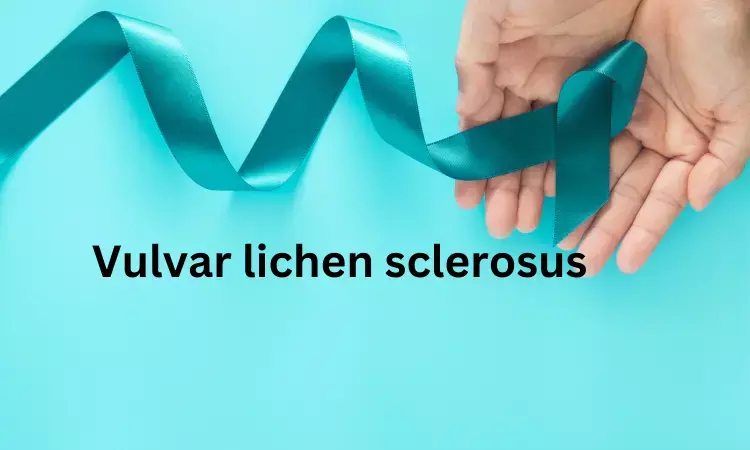- Home
- Medical news & Guidelines
- Anesthesiology
- Cardiology and CTVS
- Critical Care
- Dentistry
- Dermatology
- Diabetes and Endocrinology
- ENT
- Gastroenterology
- Medicine
- Nephrology
- Neurology
- Obstretics-Gynaecology
- Oncology
- Ophthalmology
- Orthopaedics
- Pediatrics-Neonatology
- Psychiatry
- Pulmonology
- Radiology
- Surgery
- Urology
- Laboratory Medicine
- Diet
- Nursing
- Paramedical
- Physiotherapy
- Health news
- Fact Check
- Bone Health Fact Check
- Brain Health Fact Check
- Cancer Related Fact Check
- Child Care Fact Check
- Dental and oral health fact check
- Diabetes and metabolic health fact check
- Diet and Nutrition Fact Check
- Eye and ENT Care Fact Check
- Fitness fact check
- Gut health fact check
- Heart health fact check
- Kidney health fact check
- Medical education fact check
- Men's health fact check
- Respiratory fact check
- Skin and hair care fact check
- Vaccine and Immunization fact check
- Women's health fact check
- AYUSH
- State News
- Andaman and Nicobar Islands
- Andhra Pradesh
- Arunachal Pradesh
- Assam
- Bihar
- Chandigarh
- Chattisgarh
- Dadra and Nagar Haveli
- Daman and Diu
- Delhi
- Goa
- Gujarat
- Haryana
- Himachal Pradesh
- Jammu & Kashmir
- Jharkhand
- Karnataka
- Kerala
- Ladakh
- Lakshadweep
- Madhya Pradesh
- Maharashtra
- Manipur
- Meghalaya
- Mizoram
- Nagaland
- Odisha
- Puducherry
- Punjab
- Rajasthan
- Sikkim
- Tamil Nadu
- Telangana
- Tripura
- Uttar Pradesh
- Uttrakhand
- West Bengal
- Medical Education
- Industry
Pediatric Vulvar lichen sclerosus may persist even after menarche

Vulvar lichen sclerosus (VLS) is a chronic inflammatory condition affecting the anogenital region, which is commonly seen in a prepubertal or adolescent patient. The most popular theories are its autoimmune and genetic conditioning, although theories concerning hormonal and infectious etiology have also been raised.
Though there is lack of evidence for the rates of remission and progression of the disease, it is generally now acknowledged that pediatric vulvar lichen sclerosus (pVLS) can persist beyond puberty. Recent studies reveal that this condition may persist in as many as 75% of cases. The most common presenting symptoms of VLS is vulva pruritus, discomfort, dysuria and constipation.
Dr Veronica Boero MD, PhD and team made an effort to answer to the most common query that is how does pVLS evolve after menarche? The findings are published in Pediatric Dermatology journal.
The researchers in the current retrospective study of 31 patients with pediatric vulvar lichen sclerosus, found that 58% of the patients were still affected by vulvar lichen sclerosus, 26% were asymptomatic with persistent clinical signs of the disease, and 16% had complete remission after a follow up of 14 years.
The study was a observational retrospective study conducted on premenarchal girls diagnosed with pVLS in their institution between 1990 and 2011 describes 31 patients who returned for multidisciplinary clinical evaluation following menarche.
The findings of the study are
• The mean follow-up time was 14 years. At the post-menarche clinical examination, patients were classified as follows: 58% were still affected by Vulvar lichen sclerosus.
• 16% presented with a complete remission of disease, and 26% were completely asymptomatic although with persistent clinical signs of Vulvar lichen sclerosus.
The researchers concluded that “In our series, pVLS persists following menarche in the majority of patients. These findings suggest the importance of a long-term follow-up even among patients who report resolution of symptoms following menarche.”
They added that patients and parents should be counseled that most pediatric patients with vulvar lichen sclerosus have a persistence of their condition after menarche and that long-term follow-up is required.
Reference: Veronica Boero MD, PhD, Riccardo Cavalli MD et al ; Pediatric vulvar lichen sclerosus: Does it resolve or does it persist after menarche?; 30 March 2023, DOI:https://doi.org/10.1111/pde.15308
MSc. Neuroscience
Niveditha Subramani a MSc. Neuroscience (Faculty of Medicine) graduate from University of Madras, Chennai. Ambitious in Neuro research having worked in motor diseases and neuron apoptosis is interested in more of new upcoming research and their advancement in field of medicine. She has an engrossed skill towards writing and her roles at Medical dialogue include Sr. Content writer. Her news covers new discoveries and updates in field of medicine. She can be reached at editorial@medicaldialogues.in
Dr Kamal Kant Kohli-MBBS, DTCD- a chest specialist with more than 30 years of practice and a flair for writing clinical articles, Dr Kamal Kant Kohli joined Medical Dialogues as a Chief Editor of Medical News. Besides writing articles, as an editor, he proofreads and verifies all the medical content published on Medical Dialogues including those coming from journals, studies,medical conferences,guidelines etc. Email: drkohli@medicaldialogues.in. Contact no. 011-43720751


